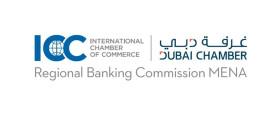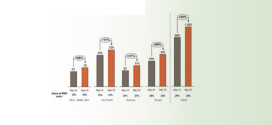There may be little pick-up for some Gulf banks in 2010 following a bleak fiscal year in 2009 in which Kuwait saw the only increase in net profits in the region, at 70 per cent, while Bahrain’s banking sector posted the biggest decline, 35.23 per cent.
Shuaa Capital, the UAE ’s largest investment bank, said in its UAE Vision 2010 report that estimated bank net earnings would fall 15 per cent in 2009 and recover by only eight to 10 per cent in 2010.
“Following the past year’s challenges, we expect 2010 to remain a difficult phase for UAE banks as the economic recovery that we are expecting does not mean the end of the regional liquidity shortage, nor the improvement of asset quality metrics,” it said.
Aside from the Kuwaiti and Bahraini banks’ positions, those in other countries fared better than they would have thanks to government intervention and liquidity injection.
“GCC bank profits were squeezed in 2009 due to deteriorating asset quality and slowing business volume growth,” said Rahul Shah, banking analyst at Deutsche Bank.
Dubai’s business community breathed a sigh of relief earlier this year as the city-state tabled a betterthan- expected proposal for $26bn worth of debt restructuring.
Confidence in Dubai has taken a knock since the full extent of its debt problems surfaced last year. Business sentiment in the emirate was down in the fourth quarter of last year, a slump that coincided with Dubai World’s November debt announcement, according to a survey by HS BC Holding plc.
“ A number of my clients in construction are owed payments by Dubai World… and now we have an understanding of what is going on
that is positive,” said Faraz Mahmood, vicepresident at Dubai-based investment bank MAS ClearSight’s private banking department.
Without the help of Abu Dhabi, it’s unlikely that Dubai could have avoided a default. Its oilrich neighbour has so far pumped in $20bn to help Dubai, a move that has brought both sides closer together.
 Cash And Trade Magazine For Cash and Trade professionals in the Middle East
Cash And Trade Magazine For Cash and Trade professionals in the Middle East




